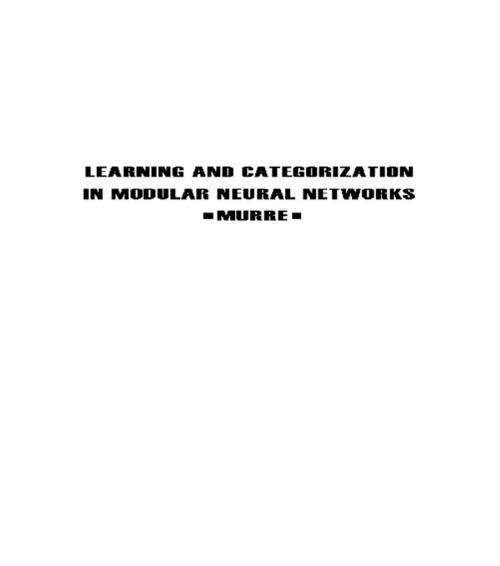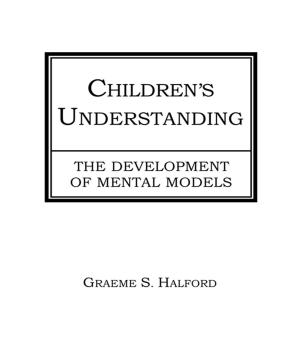Learning and Categorization in Modular Neural Networks
Nonfiction, Health & Well Being, Psychology, Cognitive Psychology| Author: | Jacob M.J. Murre | ISBN: | 9781317781363 |
| Publisher: | Taylor and Francis | Publication: | February 25, 2014 |
| Imprint: | Psychology Press | Language: | English |
| Author: | Jacob M.J. Murre |
| ISBN: | 9781317781363 |
| Publisher: | Taylor and Francis |
| Publication: | February 25, 2014 |
| Imprint: | Psychology Press |
| Language: | English |
This book introduces a new neural network model called CALM, for categorization and learning in neural networks. The author demonstrates how this model can learn the word superiority effect for letter recognition, and discusses a series of studies that simulate experiments in implicit and explicit memory, involving normal and amnesic patients. Pathological, but psychologically accurate, behavior is produced by "lesioning" the arousal system of these models. A concise introduction to genetic algorithms, a new computing method based on the biological metaphor of evolution, and a demonstration on how these algorithms can design network architectures with superior performance are included in this volume.
The role of modularity in parallel hardware and software implementations is considered, including transputer networks and a dedicated 400-processor neurocomputer built by the developers of CALM in cooperation with Delft Technical University. Concluding with an evaluation of the psychological and biological plausibility of CALM models, the book offers a general discussion of catastrophic interference, generalization, and representational capacity of modular neural networks. Researchers in cognitive science, neuroscience, computer simulation sciences, parallel computer architectures, and pattern recognition will be interested in this volume, as well as anyone engaged in the study of neural networks, neurocomputers, and neurosimulators.
This book introduces a new neural network model called CALM, for categorization and learning in neural networks. The author demonstrates how this model can learn the word superiority effect for letter recognition, and discusses a series of studies that simulate experiments in implicit and explicit memory, involving normal and amnesic patients. Pathological, but psychologically accurate, behavior is produced by "lesioning" the arousal system of these models. A concise introduction to genetic algorithms, a new computing method based on the biological metaphor of evolution, and a demonstration on how these algorithms can design network architectures with superior performance are included in this volume.
The role of modularity in parallel hardware and software implementations is considered, including transputer networks and a dedicated 400-processor neurocomputer built by the developers of CALM in cooperation with Delft Technical University. Concluding with an evaluation of the psychological and biological plausibility of CALM models, the book offers a general discussion of catastrophic interference, generalization, and representational capacity of modular neural networks. Researchers in cognitive science, neuroscience, computer simulation sciences, parallel computer architectures, and pattern recognition will be interested in this volume, as well as anyone engaged in the study of neural networks, neurocomputers, and neurosimulators.















